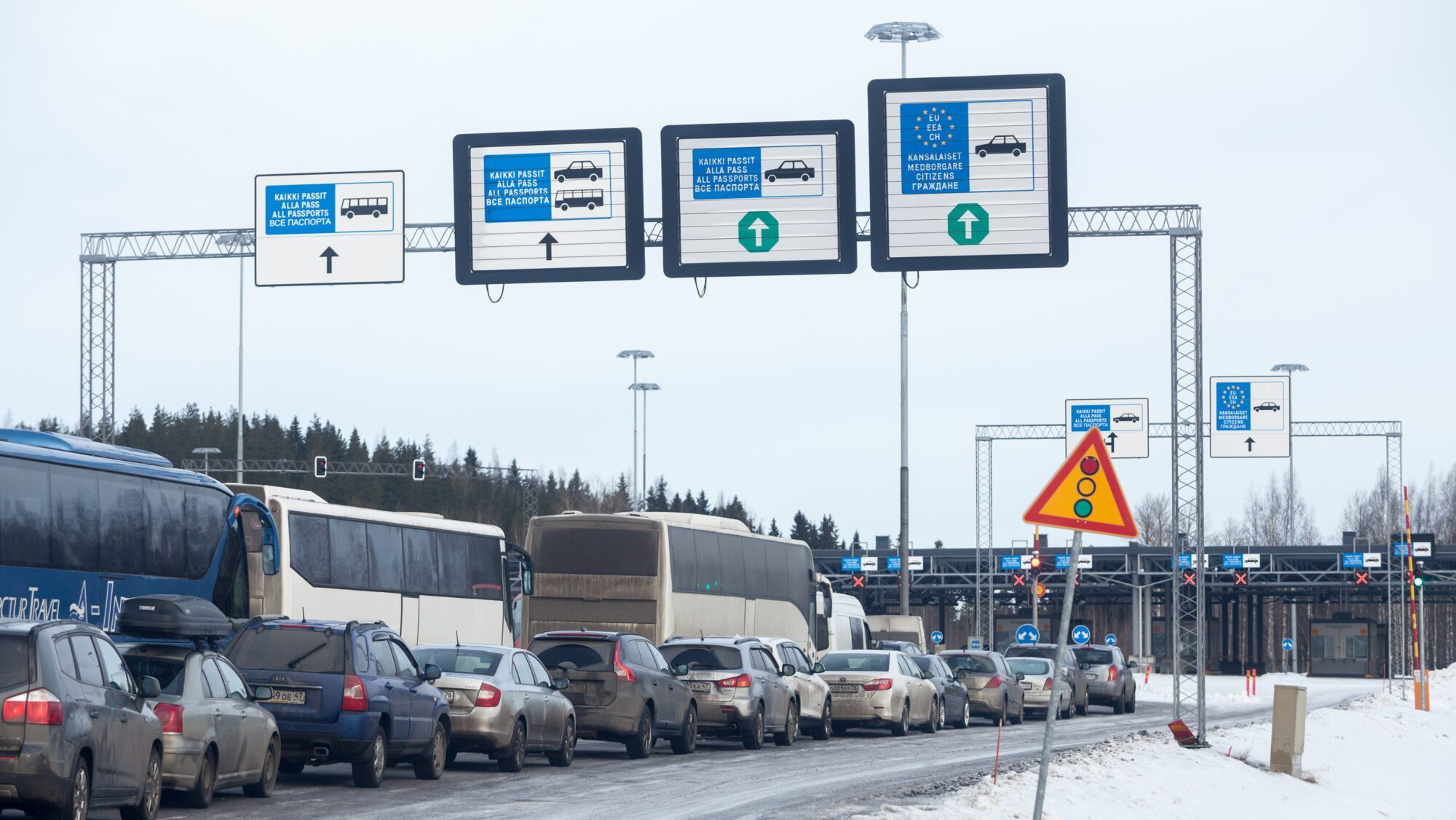
Nuijamaa, the busiest Finnish-Russian border crossing point
Photo by Kekyalyaynen / Shutterstock.com
Finland is closing the last open entry point along its border with Russia in a move to stem the rise in migrants and asylum seekers arriving at the front, a situation it believes Moscow has artificially created as a form of ‘hybrid warfare.’
In November, approximately 1,000 people from Middle Eastern and African countries presented themselves at Finland’s eastern border with Russia without proper entry visas or documentation, though the noted increase started in August, according to Finland’s border guard. The Finnish government has said it has evidence that Russia has been helping the migrants reach the Finnish-Russian border entry points, many of which are in remote locations, in retaliation for Finland’s decision to join NATO.
Earlier in November, Finland closed all the entry points on its eastern border except for the northernmost point in the Arctic Circle. Now the entire length of the 1,340 kilometer Finnish-Russian border will be closed temporarily.
“The government has decided to close all the crossing points on the entire eastern border,” Prime Minister Petteri Orpo told reporters at a press conference on Tuesday in Helsinki.
He added that the situation was “exceptional.”
The closure is set for November 30th to December 13th. Migrants can still apply for refuge at international airports and ports. The only freight traffic that will be allowed to cross the border is train traffic to and from Russia at the Vainikkala border crossing.
“I want to emphasize that it is not about the number of people but the phenomenon itself. It is a matter of an influence operation on the part of Russia,” said Orpo. “The phenomenon is a threat to our national and international security.”
“We have received information, important information that we have given to the government,” said Matti Sarasmaa, speaking for the Finnish Border Guard. “We have clear indications that the risk is that the phenomenon will continue and increase.”
Interior Minister Mari Rantanen reiterated that the problem was not the number of migrants but the background of the situation, though she could not share details related to national security.
“Some information is, of course, that we cannot tell about in public, but it is also about the potential of this threat,” said Rantanen.
The officials also addressed the question of how border guards would handle the humanitarian concerns of people arriving at the closed border in frigid winter conditions.
“The border guards have received directives for various situations that may arise,” said Sarasmaa, but he did not want to go into the concrete situations.
Orpo said that decision had been approved as constitutional by the chancellor of justice as it was temporary and justified.
“This short-term decision makes it possible to return to a situation that we had before this decision. We consider it necessary, proportionate, and legal,” said Orpo.
The government had been waiting for the evaluation of the courts to close the last border crossing point.
Moscow has denied all of Finland’s accusations.
The situation in Finland mirrors the crisis at the border of Poland and Belarus, a close ally of Moscow, in the winter before the Russian invasion of Ukraine in February 2022.
